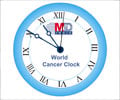Longevity FAQs
1. What is Longevity?
Longevity is the study of life extension, but more specifically, it involves extending the health-span - the period of one's life that is spent in good health, free from the chronic diseases and disabilities of aging. It's not just about adding years to life, but life to years.
2. What is the difference between Lifespan vs Health-span?
While they are often used interchangeably, it's important to distinguish between lifespan and health-span. Lifespan refers to the total length of life, from birth to death. Health-span, on the other hand, is the period of life spent in good health, free from chronic diseases or disabilities.
In terms of longevity, the aim is to extend health-span as much as possible. Adding years to life without quality of life can lead to extended periods of suffering from chronic conditions, which is not the goal of longevity research.
3. What are the factors Affecting Longevity?
Longevity is influenced by a complex interplay of genetic, environmental, and lifestyle factors. Genetics play a role, but they aren't the only determinant. Environmental factors, such as exposure to toxins, can also affect lifespan. Lifestyle factors, such as diet, exercise, sleep, and stress, are perhaps the most influential - and the ones we have the most control over.
4. How does Genetics affect Aging?
Our genetic makeup plays a crucial role in the aging process. Certain genes, particularly those involved in DNA repair, metabolism, and stress resistance, are thought to influence lifespan.
Research into exceptionally long-lived families and species has provided invaluable insights into the genetic factors that may contribute to longevity (3✔).
For instance, specific gene variants associated with lipid metabolism, immune response, and DNA repair have been identified in centenarians.
5. How does Telomeres length affect aging?
Each chromosome in our cells has protective caps on its ends known as telomeres. With each cell division, these telomeres shorten, and when they become too short, the cell can no longer divide and becomes senescent or dies.
Thus, telomere length serves as a 'biological clock,' contributing to aging and the onset of age-related diseases. Some research suggests that maintaining telomere length through the activation of the enzyme telomerase could be a key strategy for promoting longevity


















I feel proud of my life